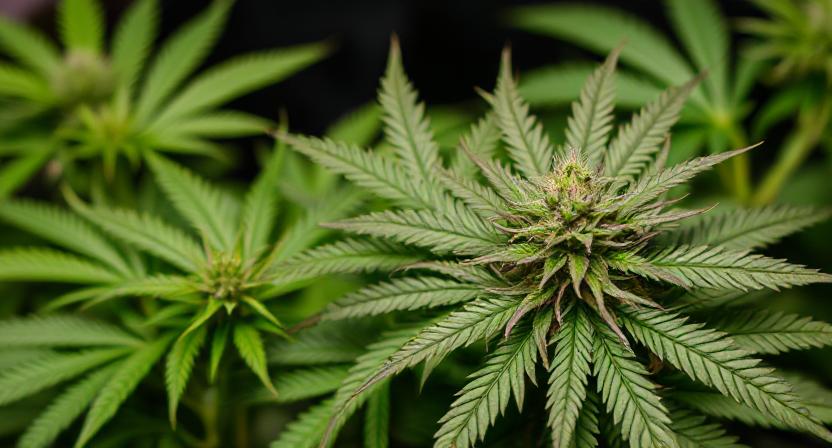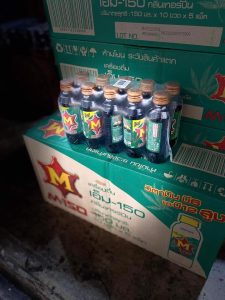- About Us
- Legal Services
- Family Law
- Property
- Marriage
- Immigration
- Contact
- Payments


Below we will take a look at what and why this has occurred and how it is being implemented now. This is a look at the Cannabis Crossroads in Thailand. This is the start of the Cannabis Act in Thailand.
Historical context: liberalisation followed by backlash
Having cannabis was illegal before as it fell under the Narcotics Act B.E. 2522, cannabis was previously a “Category 5” narcotic. This made cultivation, possession or sale a criminal offence. Then in 2022, Thailand became the first country in South East Asia to remove the cannabis flower from their narcotics list. In other words they decriminalized it into a more control environment. This however made cannabis grow rapidly.
More than 18,000 cannabis shops opened as the tourist-linked cannabis experience emerged. Even small farms changed over to cannabis farming. We even saw the rise of cannabis in the local 711 as they sold M150 with cannabis. M150 is the equivalent of Red Bull.

What the new regime entails The regulatory pivot has several major components:
The reclassification of cannabis
The herb is no completely gone. It was published in the Royal Gazette by the Ministry of Public Health (MOPH). This that the flowering part (“inflorescence”) of the cannabis plant is now officially declared a “controlled herb”. This herb now falls under the Protection and Promotion of Thai Traditional Medicine Knowledge Act B.E. 2542. This is a look at the Cannabis Crossroads in Thailand below. See the foundation of the Cannabis Act.
Key associated rules:
Now only certified or licensed entities may cultivate, process, export or sell cannabis flower buds.
Likewise the sales and advertising of cannabis for recreational use are prohibited. Also that any online sales, vending‐machine sales and sales in sensitive areas (schools, temples, public parks, dormitories, zoos) are explicitly banned. This is similar to the selling of cigarettes in Thailand to the alcohol licence in Thailand.
Good Agricultural and Collection Practice (GACP) certification is required for cultivation of flowers intended for sale. Likewise the record‐keeping and seed‐to‐sale traceability becomes essential. This is because fraud might creep in the process.
Prescription regime: medical‐only use Cannabis may now legally be obtained only by individuals holding a valid prescription from a recognized medical practitioner. We can see this today in Bangkok at those shops which still exist.
This is where it gets complicated. This procedure follows the completion of the PT 33 form. It has to state which strain of cannabis is being dispensed as well as the dosage. The duration also needs to be stipulated and this may not exceed 30 days. The person prescribing this must be a medical doctor. This can also be prescribed by a dentist pharmacist or traditional practitioner.
Likewise the dispensaries must keep the prescriptions for at least one year. Failure to comply will lead to one year imprisonment with a 20,000 THB fine.
Sale and retail restrictions
Retailers or dispensaries can only sell cannabis to customers who present a valid prescription. Likewise the supply must originate from licensed and GACP‐certified growers. Likewise you will note that smoking cannabis in business establishments is prohibited. This is unless is is done under the supervision of certified medical
professionals.
Note that there is also the monthly reporting requirements for retailers, cultivators and exporters. They must report the source of the cannabis as well as usage and their inventory.
Enforcement and penalties
The new rules for cannabis came into effect immediately. The Government as gave hints that there are plans to re‐classify cannabis as a narcotic (Category 5). This will then fall under the Narcotics Act, meaning that it will be a criminal act. Note that for current breaches. This for the sale without prescription. Likewise for the unlicensed cultivation and advertising for cannabis. Now penalties can include imprisonment. As stated above for one year imprisonment and fines of 20,000 baht.
Reasons driving the policy reversal
Several important drivers explain why the government shifted course so sharply:
Public health and youth concerns: Since cannabis has been made legal there has been a rise in addiction. This especially with the younger people. These are minors who are using it as a recreational drug. Regulatory chaos / oversight gaps: There was regulatory chaos when the government did not like. There where mainly dispensaries in Thailand. There was no traceability for the cannabis. There was also cross border smuggling with tourists.
The system was out of control.
Political shifts: With the change in politics and the exit of the pro‐cannabis. Bhumjaithai Party from the ruling coalition. Likewise with the rise of the ascendancy of the Pheu Thai Party. They have been campaigning for cannabis to be limited to medical use.
Investment tourism risk: The initial idea was based on forecasts that they where entering a to US$1 billion industry per year. However something they did not consider was this will expose Thailand to reputational risk as well as tourism risks .
We saw how many tourists tried to smuggle cannabis into Europe.
Implications for stakeholders
This policy shift has wide‐ranging implications for different actors:
• Cultivators, processors and dispensaries
The market started a bit like the Wild West. Now that there is a rollback many dispensaries have started to close it doors. The compliance burdens has been too much for most. They now have to maintain proper licensing. Likewise they must ensure GACP certified sites as well as maintaining records of producers they buy
from. Lastly the inspections could close the store.
Those stores or dispensaries that used to depend on walk in traffic. They now either comply with the laws and form a medical clinic operation or shut down. Growing cannabis also became more expensive as they must comply with the requirements for GACP certification. Likewise they also have to keep the seed‐to‐sale logs as well as the audit trails. This favors larger, well capitalized firms at the expense of small farmer entrants.
• Medical and health sector
The cannabis market has changed from where is started in 2022. We are now moving more to a prescription market. This brings with it accountability and control as now medical professionals are involved. There is now a standard such as the keeping of proper records and the medical profession being used as a gatekeeper.
The change in cannabis usage also affects the wellness and spa industry. The government will set and narrow down the usage of cannabis. Likewise see the Thai hemp laws as well. Issues such as insomnia, chronic pain and migraines are still being developed.
• Tourism and hospitality
There will be big contraction in the tourism that depends on cannabis sales.Since recreation access is now denied the cannabis shop setup has changed. The idea of buying weed casually has come to an end. Hotels and resorts that sells packages that include cannabis will also change. This as their customers will need a medical prescription for this. They will have to change their business model or also face contraction like the cannabis shops.
For big business this may be a boom or a loss. Those who have large amounts of capital will simple adjust and will dominate the market.
• Consumers and civil society
Buying cannabis in Thailand without a prescription could get you into trouble. This is both for local and foreigners. The prescription is now mandatory and recreational use is no longer allowed. There are many in civil society that argue that by changing the laws without consultation may lead to cannabis use underground. This is what they tried to avoid by making it legal in 2022.
Challenges and open issues
While the new rules are clear in many respects, implementation raises several issues:
Prescription model details: Nobody is certain how online prescriptions would work. How long would it take for this to change. The government had already noted that online prescriptions are not allowed. There would simply be to many opportunities for fraud by allowing this.
Transitional protections: What people are complaining about is that there is no grandfathering of the old cannabis regime into the new cannabis regime. So there will either be compliance or they might move underground.
A study titled “Trends of cannabis use and related harms before and after legalization for recreational purpose in a developing country in Asia” (for Thailand). They found that the use of cannabis had almost doubled during the liberalization phase. The use of cannabis went from 2.2% in 2019 to 2.5% in 2020, and then to 4.2% in 2021. That means that Thailand has about 800,000 cannabis users. This is a look at the Cannabis Crossroads in Thailand.
Enforcement gap: Enforcement might be difficult but easy on paper. Checking the monthly reports and auditing this as well as companies that don’t fully understand the law might be problematic. According to the Thai Traditional and Alternative Medicine (DTAM) there are about 18,000 licensed shops in Thailand.
Strategic considerations for business and legal professionals
Given these developments, the following strategic pointers are worth noting:
For businesses in the cannabis sector:
If you are going to start a cannabis business then you have to decide which model do you want. There is the option of a dispensary, you could also be a grower. Likewise there is the exporter as well as the café owner. These will fit within the “medical only” regime.
You will need to ensure cultivation or supply chain complies with GACP certification. There is the seed to sale traceability issue. Likewise there needs to be a government approved cultivation site. You will need to ensure quality testing as well as audit logs to show who and how much you are selling to stores. Noncompliance is a new risk.
Likewise you will need to ensure retail operations have bonafide medical practitioners. This can be on staff or as a partner. You will also need to ensure that the prescriptions are properly recorded and maintained for at least one year.
What to watch going forward
Formal schedule listing as narcotic: We will need to monitor when the cannabis is formally placed back as a Category 5 narcotic. This could place people into legal trouble with the law.
Detailed implementing regulations: While the rules are being put in place we should watch as the law covers medical prescriptions. Likewise how difficult is it to renew your licence. Likewise the licensing fees and export quotes. Lastly there is the GACP audit criteria that will also have to be set.
Transition timeline for existing operators: There are the reports that all shops should be in full compliance by 11 November 2025 which is a few weeks away.
Enforcement actions: How will enforce work and will there be a grace period. This we don’t know. We can take a guess as to how the government will enforce the law. Impact on tourism/foreign visitor influx: We can watch embassy publication or travel advisories on the situation. How this will affect the hospitality industry we
don’t know.
Market consolidation: We can see that the smaller shops will close as their customers will cut back. We will need to track mergers as only the big players will survive the shift of the law.
Conclusion
There has been major changes in Thailand when it comes to the cannabis rollback in 2025. This moving cannabis into the prescription regime in Thailand. Recreational use has stopped in Thailand now. Cannabis has now close the window on liberalization of the industry and brought it back into the medically oriented, tightly regulated system. The outcome will shape not only Thailand’s domestic cannabis market but potentially the region’s approach to cannabis. This is what is being looked at as the Cannabis Act.
The information contained in our website is for general information purposes only and does not constitute legal advices. For further information, please contact us.